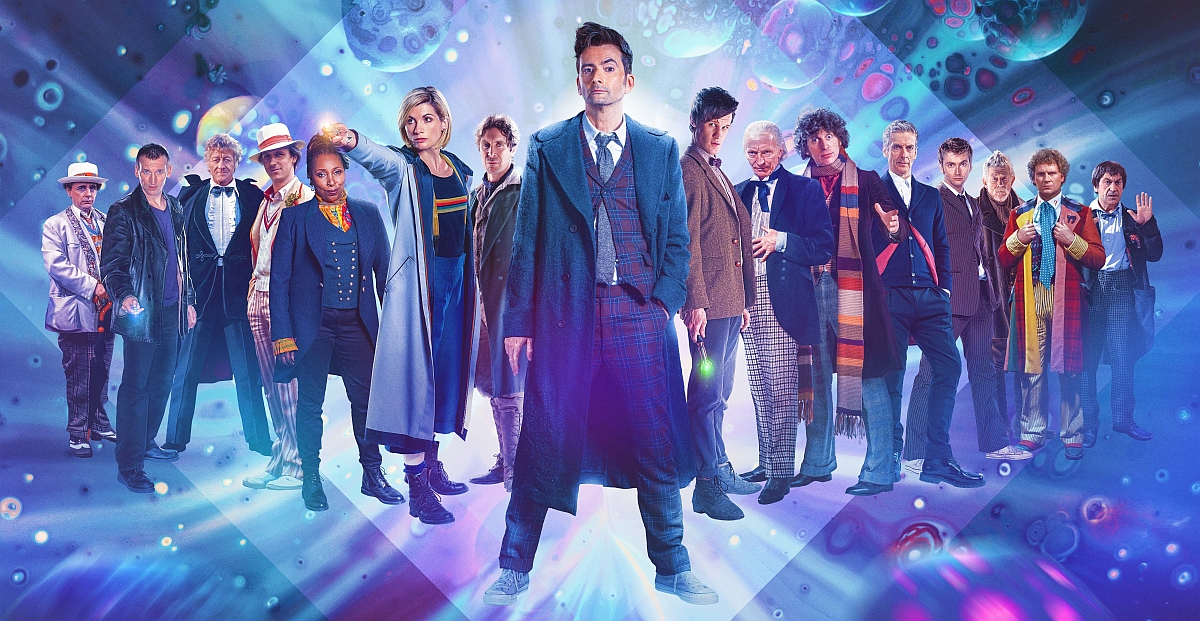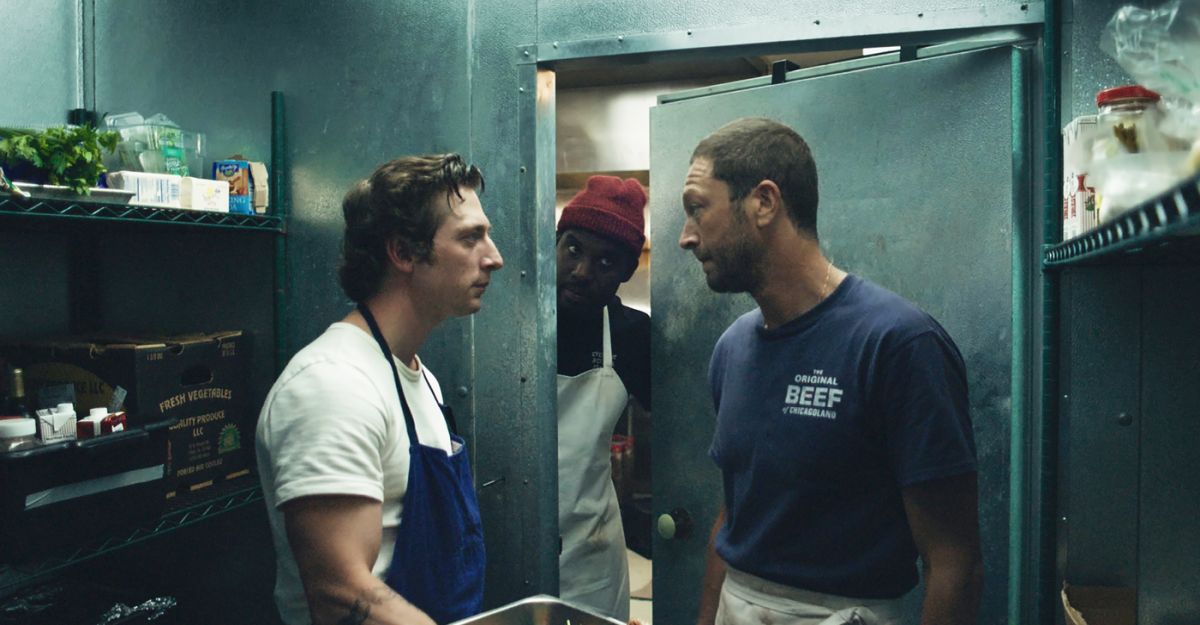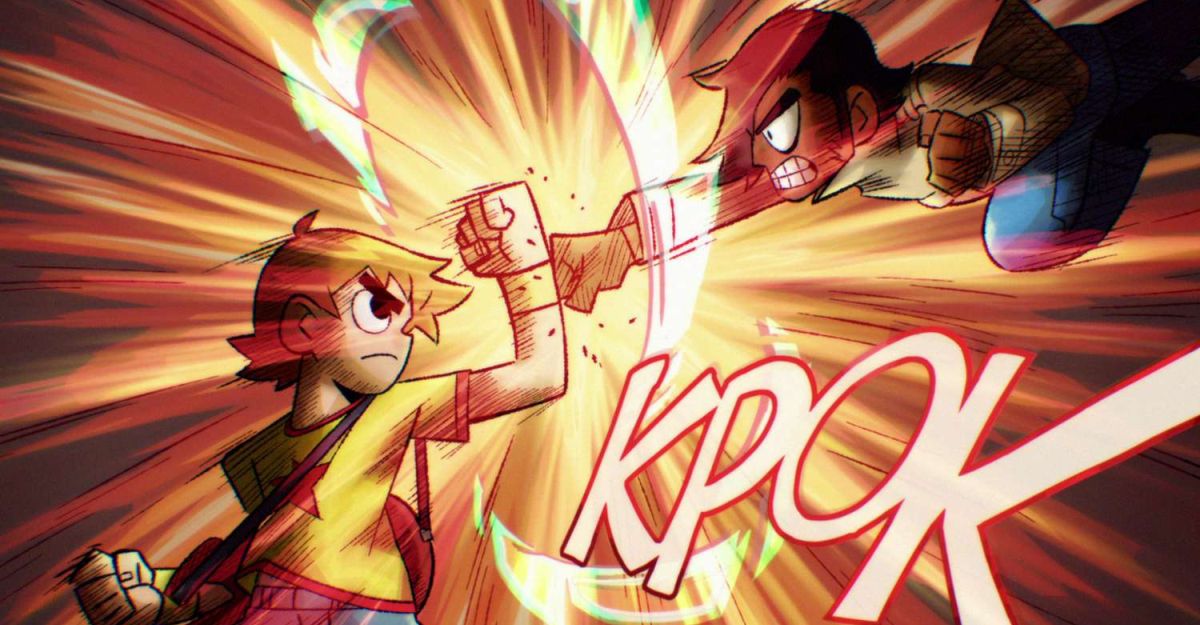People always ask me what is it about the show that appeals so broadly. The answer I would like to give — and which I’m discouraged from giving because it is not useful in the promotion of a brand — is that it’s about death.
Peter Capaldi
Cut word lines—Cut music lines—Smash the control images—Smash the control machine—
William S. Burroughs, The Soft Machine
Doctor Who turns sixty today, still the longest-running work of science fiction television. Long-time viewers, including me, are braced for the bevy of familiar platitudes played out whenever an anniversary like this is celebrated. Yes, it’s ‘the children’s own programme that adults adore.’ Yes, it originally had an educational purpose. Yes, it continues to inspire young people to work in science, or broadcasting. Yes, it scores over other sci-fi because of its commitment to pacifism, and so on. But, having now sat with the show for twenty years, I find myself asking: is that the whole picture? To what extent is the meaning of Doctor Who determined not by what is broadcast, but by this imagined version of the show that exists in the public eye, largely structured by fans explaining why Doctor Who matters? And does this ‘gospel’ obscure other modes of relating — or, indeed, not relating — to the show?
Australia’s relationship with Doctor Who was recently severed, when it was announced that Disney would be taking over distribution of the show outside of the UK — meaning the ABC would no longer air new episodes. It felt like short shrift for a broadcasting partner of fifty-eight years. Australia was the second country outside the UK (after New Zealand) to air the show and the only country outside the UK to have screened (almost) every single episode.
It’s easy to forget to what extent Doctor Who is part of our cultural consciousnes. The title for this article is cribbed from a song by Bullamakanka, better known for their single ‘Home Among the Gumtrees’. From 2017, the ABC screened Whovians, a post-episode discussion format usually reserved for American cable hits like Game of Thrones.
The show struck a chord here and its absence from the ABC will be felt, not only by diehard fans but also, I suspect, by the culture at large. But looking at that culture now — one that will not accept we have only ever been so-called Australia, that will not own up to our active participation in Western imperialism, that repeatedly fails to recognise the need for treaty with First Nations people — it’s worth asking whether we learned anything from a programme famed for its social conscience. But then, was that conscience ever intended for us?
*
In a 2013 article for Doctor Who Magazine, celebrating the fiftieth anniversary, writer Jonathan Morris argued the show’s appeal has nothing to do with it being British:
It’s not about the trappings of Britishness … and it’s not about any sort of attitude or sense of humour either, as a British mindset (whatever that might be) is hardly unique to Doctor Who. If anything, Doctor Who — a show created by a Canadian, initially written by an Australian and directed by an Indian — is a subversion, if not an outright rejection of Britishness, the product of 60s libertarianism and post-colonialism …
This subversiveness may well account for the fandom of writers like Morris, who grew up with the show in its 70s heyday, and the current generation of fandom, who grew up with the 2005 revival and are now effectively ambassadors for Doctor Who — not only on social media but also by producing the show’s ‘expanded universe’ of magazines, audio dramas, and other ephemera. But so much of that work (including its subversiveness) occurs within a British frame of reference. The nationalities that Morris lists as having conceived the show were, in 1963, all still working to move out from under the shadow of British settler colonialism. In many ways, they still are. Fandom has come to rally round a utopian narrative that Doctor Who is the show for everyone, that it can do everything, but this is never quite true. After all, it couldn’t remain a public television programme.
Gospel, national identity, utopia — these are loaded words to throw around in connection with a children’s show. It may seem that I’m either blowing it out of proportion, or, worse, trivialising more serious cultural work, as sci-fi has been said to do, turning life and death into fodder for adventure fiction. In a 1972 essay, Polish sci-fi writer Stanisław Lem singled out the work of Philip K. Dick as rising above the ‘Realm of Trivial Literature’, albeit not completely:
The surfaces of his books seem quite coarse and raw to me, connected with an omnipresence of trash … His prose is threatened by uncontrolled outgrowths.
Dick responded, explaining:
But you see, Mr. Lem, there is no culture here in California, only trash. And we who grew up here and live here and write here have nothing else to include as elements in our work … The West Coast has no tradition, no dignity, no ethics — this is where that monster Richard Nixon grew up. How can one create novels based on this reality which do not contain trash, because the alternative is to go into dreadful fantasies of what it ought to be like; one must work with the trash, pit it against itself …
The truth is that those who find something profound in popular culture rarely choose to. But suddenly, some unexpected confluence of cultural detritus — like a phone box landing on Mars — cracks the bulwark of the everyday and sparks some new way of seeing.
The last three series of Doctor Who, helmed by showrunner Chris Chibnall and an exuberant Jodie Whittaker as the Thirteenth Doctor, played fast and loose with this legacy of pop surrealism. That famed social conscience (much discussed in the context of the series’ first female lead) was punctuated by a series of startling images: metal-eating gremlins; funereal aliens bearing witness to the Partition of India; Nikola Tesla kidnapped by giant scorpions; the buried TARDIS of a secret Doctor; Daleks reinvented as riot police; the Doctor turned into a Weeping Angel; and half the universe engulfed by the ‘Flux’ event.
Audiences and critics were split. Previewing the upcoming sixtieth anniversary specials as part of this year’s top TV, The Guardian complained that Chibnall had ‘nudged the show closer to the wilderness.’ Despite strong performances, fans felt characters were given short shrift by writing that didn’t follow through on the ambition of those images. In the age of ‘prestige’ television, Doctor Who was falling short, even in the social conscience stakes. The Thirteenth Doctor often acted ruthlessly to avoid changing history. They infamously declared that ‘the systems aren’t the problem,’ tried using the Flux to wipe out the Daleks, Cybermen and Sontarans in one fell swoop, and rebuffed the faltering advances of their companion Yaz, depriving us of a queer romance for the ages.
Yet few people seem to have considered these shortcomings in the context of the Doctor’s alienated — and alienating — identity. Writing for The Escapist, Darren Mooney argued that
Chibnall’s Doctor Who rejects any idea that things can get better, that systems or even people can be improved. Instead, [it] fights for the preservation of the status quo.
For Mooney, the Thirteenth Doctor’s admission that they cannot fix themselves is an ‘inability to imagine a new or better world.’ But it’s precisely that gap between imagination and the world that made Chibnall’s Doctor Who intriguing.
When Russia invaded Ukraine, some people began reposting the Twelfth Doctor’s acclaimed anti-war speech, from the 2015 episode ‘The Zygon Inversion’, as if this was what the world really needed to hear. I’ve seen it happen again in response to Israel’s bombing of Gaza. It plays into the cliché that fans only think of things in terms of Doctor Who, but it’s also symptomatic of the approach of Chibnall’s predecessors.
At least since its revival, the series has bought in to a secular fairy tale, in which ‘we’re all stories in the end’, such that anything can be resolved with a beautiful speech. The Thirteenth Doctor, by contrast, debuted as ‘The Woman Who Fell to Earth’, colliding the cuddly paternalism of what came before with the uncomfortable terrain of lived experience. Whether or not that terrain was fit for Doctor Who, it had been invited in by the series’ persistent lecturing — literally, given the Twelfth Doctor spent his final series shacked up at a Bristol university. The Thirteenth Doctor’s era wasn’t cynical about this, instead often earnestly struggling to find a place for the show’s politics in a world that wasn’t neatly scripted for them to fit in.
On one level, this pushed the Doctor away from us. The Thirteenth Doctor’s remoteness quickly became the most powerful part of Whittaker’s performance, as she leant into embodying a figure whose abrasiveness has nothing to do with them being inherently male but rather with their fundamentally different relationship to time, to matter itself. As the Doctor once declared, way back in 1967’s ‘The Evil of the Daleks’, they are ‘not a student of human nature’, but ‘a professor of a far wider academy of which human nature is merely a part.’ Indeed, Chibnall reimagined the character to be more alien than we had thought, hailing from another universe altogether — a foundling exploited by their adopted home of Gallifrey to build an empire. The concomitant retreat into the series’ mythology can certainly be read as part of a broader pop-cultural reliance upon nostalgia, but it also felt like the ‘Whoniverse’ attempting to jettison from this world, our world, before we tear ourselves apart. At the close of 2020’s ‘Orphan 55’, narrowly escaping from a future Earth ravaged by climate change, the Doctor turned to their companions and the camera, saying,
You want me to tell you that Earth’s going to be okay? Cos I can’t … People can save planets, or wreck them. That’s the choice.
After sixty years of watching the Doctor save the day, it’s easy to cry foul, but, as the phantasmagoria of those sixty years demonstrates, their days are not ours. Author Jeff VanderMeer, in a powerful reflection on the idea of climate fiction for Esquire, has argued that
The search for hope is hopeless or beside the point. Fiction can’t save us in this particular way, although it can pretend to, but if in a book a heroine survives climate crisis, this has no corresponding nexus or loci in the real world, no matter how strong the will of the reader that it be otherwise.
‘Orphan 55’ is arguably the ultimate climate fiction: pulpy, angry, biting back at the demands placed upon it by a reality that expects fiction to fix its problems.
But the flipside of this is, in all that pulp and anger, the Thirteenth Doctor’s era did end up speaking to lived experience. The final series, produced in the middle of a pandemic, felt like a frantic transmission from a collective unconscious under siege: ‘the maps definitely don’t make any sense anymore’ declared one character plaintively. We may have balked at the Doctor’s attempt to eradicate the Daleks, Cybermen, and Sontarans, but weren’t we all waiting for someone to eradicate Covid-19? VanderMeer locates importance in other fictions
for making the reader live in cascading different psychological realities related to climate crisis, and for making the reader see those places from vantages other than the heteronormative.
And although the Doctor remained frustratingly one step removed from queer intimacy, it rang true to an incarnation of the character that reflected our own alienation back at us.
It isn’t that all messily plotted genre fiction is beyond reproach. Maybe I’m just a philistine who happens to enjoy it — I’m only Australian, after all. Nor am I trying to cast aspersions on what comes next for Doctor Who. It’s impossible to read incoming lead Ncuti Gatwa discuss the character and not feel some excitement for where he will take it. But that excitement, that hunger always for more, is a curious feeling to hold in the wake of the series grappling with its own ontology.
The move to streaming and the promise of Disney’s global reach seems to have secured the perpetuity that fandom craves, even if the privatisation of the series necessarily changes the audience that is best positioned to access it. We like to gentrify sci-fi a little, suiting the genre up and setting it to work on blueprints for the future, to imagine an alternative into which we can escape. In doing so, we forget the genre’s capacity for derangement. Sci-fi can also cut us loose from what we thought we knew, such that we find ourselves falling, like the Doctor, to an unfamiliar Earth. Often it succeeds in this not despite its rough edges but precisely because of them, breaching the gaps and lapses in the thing we called reality.
I keep thinking of 1975’s ‘Pyramids of Mars’, in which the Fourth Doctor’s companion Sarah Jane Smith suggests foiling the aliens running amok in Edwardian England by simply leaving in the TARDIS, returning to her own time. ‘We know the world didn’t end in 1911,’ she declares. Remarkably, the Doctor acquiesces, and the TARDIS whisks them away. The doors are opened, only to reveal a blasted landscape, devoid of life. ‘1980, Sarah,’ declares the Doctor, ‘if you want to get off.’
SARAH: It’s a trick!
DOCTOR: No. That’s the world as Sutekh would leave it. A desolate planet circling a dead sun.
SARAH: It can’t be! I’m from 1980.
DOCTOR: Every point in time has its alternative, Sarah. You’ve looked into alternative time.
Contrary to what the Thirteenth Doctor once said, systems are the problem, including fiction. As Derrida was always ready to remind us, deconstruction is not a method, to be employed by glib screenwriters, but rather a feature of language itself, betraying that void between what we might imagine and what we can script. The Doctor may pit themselves against Daleks, Cybermen, Sontarans, and Silurians, but all are ultimately children of empire. Do we really need the flagship sci-fi export of the coloniser? I’m not sure. Many can relate, I think, to what Gatwa eloquently describes as ‘[fitting] in everywhere and nowhere’. And perhaps we know something of what it’s like, as the First Doctor asked of us in the show’s very first episode ‘to be wanderers in the fourth dimension’, looking forward to a culture that fractures into variegated possibilities, and back at a settler-cultural legacy with a mixture of curiosity and disgust.
This is where that monster Peter Dutton grew up. This is where I grew up, sitting in front of the ABC, just before the news. This is where I stared into the billowing vortex of a title sequence that showed me how we are each ensnared in a whorl of space-time, invisible rays of information beaming through us at a million miles a minute, mutating us into – what? Doctor Who cast its spell by daring us not to blink, but to look – there! – into the flickering screen, into alternative time, into a nightmare, into the here and now — 2023.
If you want to get off.



